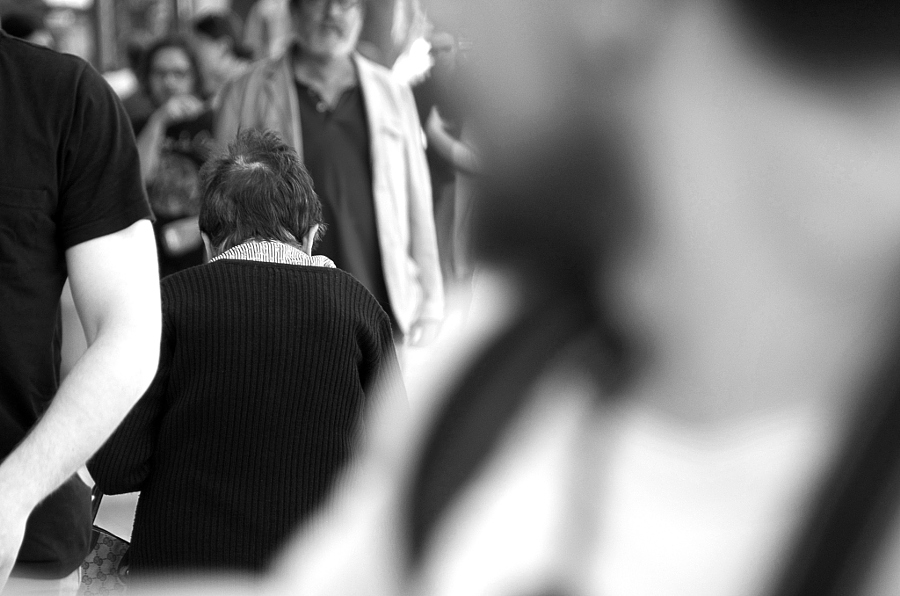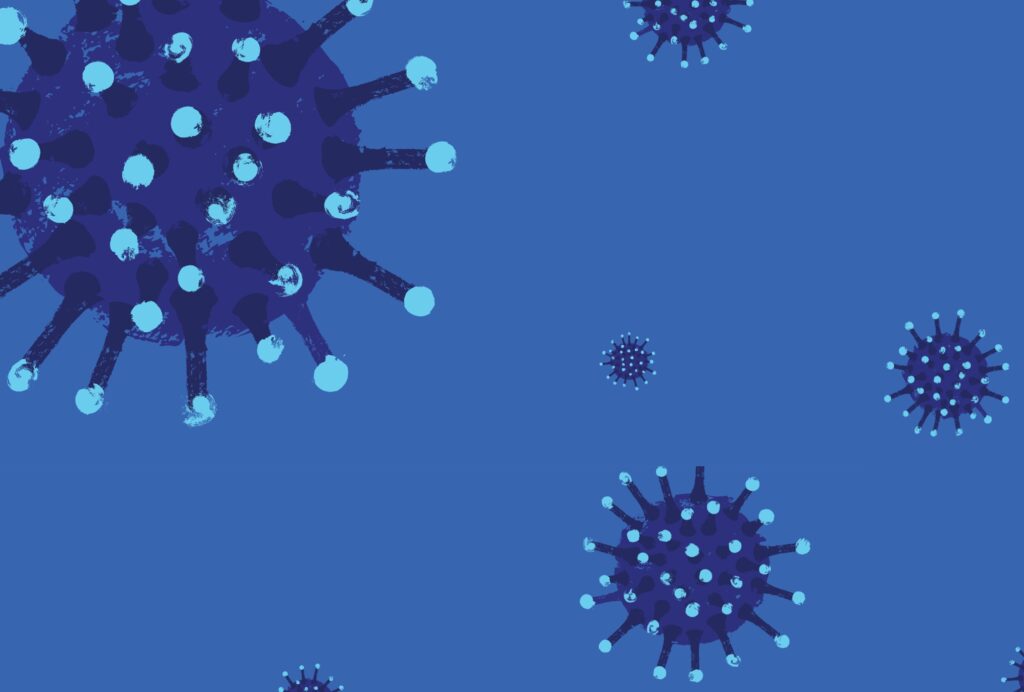As we sat down for dinner the other night, the windows of our Oxford apartment started rattling. Outside, the street was erupting in applause as neighbors put their hands together—and their tin pots—for the UK’s National Health Service. We threw open our windows and joined the din for what is now a weekly national ritual during the pandemic. I thought of our city’s hospital, where a friend works in emergency. With a little pride, I also thought of my mother back in Australia, an Iranian refugee who worked for decades as a registered nurse.
It is easy to be defeated by a sort of Zeno’s paradox of moral resignation: if we think no step we take can move us forward, we fail to act.
The gesture of gratitude was symbolic, of course. It was another reminder of how Janus-faced the fight is: individuated, tiny acts binding us to our collective fate. The only way to beat it, experts say, is to “flatten the curve.” By slowing its spread, we can buy time for health systems to get it under control, including by increasing ICU capacity and upping the supply of ventilators and protective equipment.
In many places where the health crisis is acute, the importance of individual action has gone from widely dismissed to an article of faith. Hand washing. Coughing into your elbow. Restricting activities outside your home. These ordinary, everyday acts now have vast human, political, and economic ramifications. The implications of what seemed trivial a few weeks ago now reach to the heights of geopolitics and the rise and fall of nations. The core responsibility of each person has a strangely paradoxical character: the social thing to do is to isolate yourself. In an unusually explicit way, the virus makes salient the power of a single person.
Philosophers are among those who have written about the ethics of small actions that have large consequences. Perhaps the most well-known example might come from the late Derek Parfit. In Reasons and Persons (1984), he compares two thought experiments based on a kind of sorites paradox about levels of pain. In one case, there are a thousand torturers, each of whom controls an electronic torture device connected to one victim. Each device features a dial controlling the level of pain imparted, with a thousand settings. The pain imparted by each turn of the dial is imperceptible, but if the dial is turned all the way up, the victim experiences severe agony. And everyone would agree that if each torturer turns the dial a thousand times, each torturer has committed a great moral wrong by imparting severe agony.
Many of our interactions with the world connect us to the suffering of others while at the same time psychologically distancing us from them.
In the other scenario, Parfit imagines the same pain being imparted but in a way that makes no one torturer responsible for imparting any perceptible pain at all. In this case, each of the torturers presses a button, which turns all thousand dials one time, but none of them know what the others are doing. After each torturer presses the button, the victims suffer in total the same amount of pain as in the first case, but now none of the individual torturers has caused pain in any of the victims. The harm is diffused rather than localized; the torturers are “harmless.”
The moral problem posed by this thought experiment has less to do with the quantification of harm and more with how humans cut themselves off from the consequences of their actions. And as we better understand our capacity to spread the virus—when we get our heads around the possibility that we might be asymptomatic vectors, for example, passing it on via a surface we touch in the grocery store—such analogies have diminishing relevance. Harmless torturers—that is, each of us—can’t be deemed harmless once we know how our actions are linked to the suffering of others, even if it remains difficult to acknowledge our destructive role due to a significant dose of bias.
• • •
The idea that we are connected to the harm of others in subtle and fragmented ways lies behind many pressing ethical challenges. Some philosophers have tried to make the case for why we are morally compelled to respond to our entanglement using complicated chains of harm.
The sense of our own negligibility can make us feel powerless to contribute to badly needed social transformation.
In his aptly named book, Complicity (2000), Christopher Kutz, for example, suggests that we should each be held accountable for willfully participating in collective activity that causes harm (not merely instances where we cause harm directly). Likewise, Judith Lichtenberg writes in Distant Strangers (2014) about the “new harms” of our globalized world that are “seamlessly woven into our normal routines.” We buy cellphones that use coltan mined by warlords and fill our cars with fuel that enriches despots. We eat shrimp farmed by modern-day slaves and chocolate made from cocoa harvested by children. We wear jeans manufactured by exploited women in sweatshops. The anthropologist Mary L. Gray worries that a new global underclass is emerging due to ubiquitous digital platforms that use artificial intelligence but only function with human “ghost work” such as data labelling and content moderation.
Many of our interactions with the world, it turns out, connect us to the suffering of others while at the same time psychologically distancing us from them. Through our normalized action we risk becoming cogs in a machine without seeing what the machine is producing—components in Parfit’s torture device, rather than its controller. The deep moral problem, then, is a narrowing of structural vision, rather than a failure to account for individuated wrongdoing. We do a distinct kind of wrong when we refuse to notice social structures that co-opt us in elevating some while subordinating others. We mistakenly substitute a focus on individuated blame for what should be a concern for the common good.
The critical ethical challenge is to render the relationship between individual agency and structural change more perspicuous. The Princeton political theorist Melissa Lane points out in Eco-Republic (2012) how hard it is for humans to understand their actions as anything other than negligible in the face of large social problems. But, more hopefully, she also stresses how it is possible to do so by cultivating our political imagination. Lane applies her thinking to the climate crisis. The ripple effects of our seemingly negligible individual actions may be easier to perceive during COVID-19 than the climate crisis, but the demands on political imagination right now might be harder—the pandemic has been thrust upon us without the benefit of an intense process of social learning leading into it.
We do a distinct kind of wrong when we refuse to notice social structures that co-opt us in elevating some while subordinating others.
Lane’s argument cuts in two directions. The problem is not just that we fail to appreciate the full effects of our actions but also that the sense of our own negligibility can make us feel powerless to contribute to badly needed social transformation. It is easy to be defeated by a sort of Zeno’s paradox of moral resignation: if we think no step we take can move us forward, we fail to act. Lane defuses the problem by insisting that significant social change can be brought about by what might look like negligible steps, with each human node shifting the parameters of political possibility—just as, contrary to Zeno, we are not destined to remain motionless. In particular, Lane argues, uncertainty and unpredictability reign in politics and human action, so it is a mistake to assume these domains operate within a stable equilibrium. Social models that presuppose humans don’t have the capacity for collective action because of a fixed or ingrained set of interests, habits, or identities run the risk of fulfilling their own predictions.
• • •
Considered in this light, the pandemic is a high-stakes version of an older, deeper challenge to take steps to build a world that more fully recognizes our overlapping fate. Acknowledging our complicity in the harm of others, or sharpening our sense of who to blame, is not a sure enough foundation for that kind of moral work. Culpability doesn’t inspire civic virtues of steadfastness or sacrifice. One need not go as far as Barbara Fried, writing in these pages, and reject the idea of blame altogether in order to recognize that the disposition to blame others can become an obstacle to solving societal problems. Indeed, when it turns into a pattern of targeting the most vulnerable among us for structural failures, such blame typifies the spiritual and intellectual impoverishment of our age.
If we enrich our political imagination deeply enough, we will invest in the infrastructure needed to realize the widely espoused but poorly enacted idea that every person has equal moral worth.
In contrast to the backward-looking nature of blame, realizing the power of one person can orient us to the future. This involves taking up what the political theorist Iris Marion Young, in her posthumous book Responsibility for Justice (2012), called a “social connection model” of responsibility that focuses on eliminating the background conditions of structural injustice. Each of us must seek an individual commitment to find creative ways to make and remake norms and institutions so they can better protect all people, especially the most vulnerable, from threats of domination or marginalization, including those compounded by a health emergency or economic collapse. That includes not just the nurses and doctors we clap for, not just teachers and farmers, but also all the precariously employed and unemployed, from the postal workers, janitors, and grocery clerks who can’t afford to self-isolate, to all those performing the work of care. And this commitment shouldn’t be restricted by borders, even if it is mostly mediated through local and national initiative.
This moral work is really that of a joint project among many, less about the harm we might inflict through our everyday interactions than the capacity of ordinary citizens to create a more just social order through social action and participation in conversations about the moral basis of collective life. Contrary to the logic that says small steps are futile, each person has a part to play in that project, harnessing the diversity of wisdom, talents, roles and social circumstances found in society at large. Flipping the script from spectatorship to agency is vital for addressing the present crisis as well as properly learning its lessons.
If we enrich our political imagination deeply enough, we will invest in the social and economic infrastructure needed to realize the widely espoused but poorly enacted idea that every person has equal moral worth. Each of us bears some responsibility for making that happen—in our daily encounters, in the life of our communities, and in other efforts we take up, however slight they may seem, to shape the direction of society as a whole.










